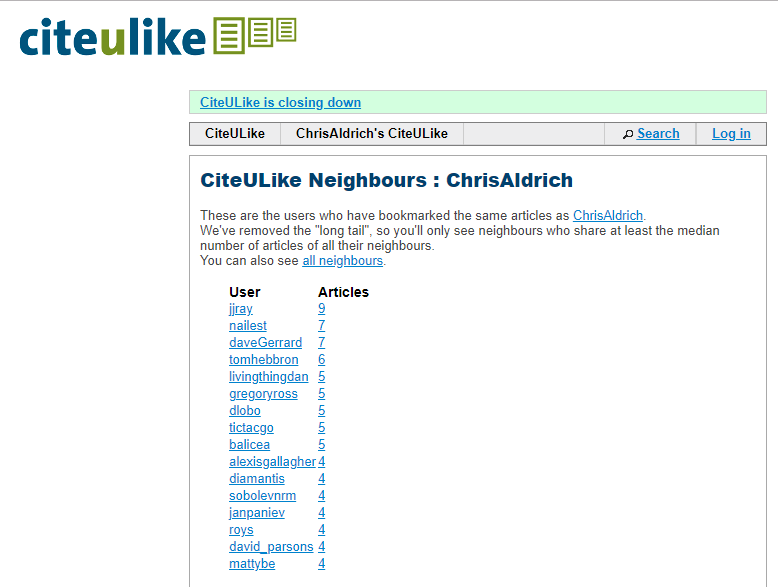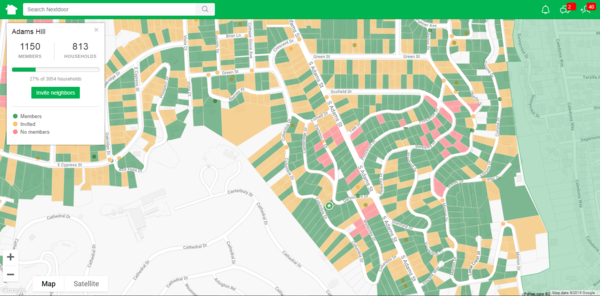neighbor
This article is a stub. You can help the IndieWeb wiki by expanding it.

A neighbor is a person who is nearby based on one or more specific types of data points which may include location, time, tags, friends, followers, language, hashtags, interests, or other criteria for the purpose of potential discovery and/or forming potential groups.
Traditionally, in real life, a neighbor has been someone who lived near you based on the two fixed geographical points at which you may both live. Within the online world, a neighbor can take on a variety of other meanings based on one or more data points which you share in common besides physical proximity.
IndieWeb examples
 Chris Aldrich maintains a following page which lists his online neighbors that he is both actively following and which are segmented by various tags based on interests including IndieWeb, education, journalism, research, mathematics, web design, linguistics, food, etc.
Chris Aldrich maintains a following page which lists his online neighbors that he is both actively following and which are segmented by various tags based on interests including IndieWeb, education, journalism, research, mathematics, web design, linguistics, food, etc.- Add yourself here… (see this for more details)
Silo examples
CiteULike
CiteULike (explicitly) defined neighbors as the users who have bookmarked the same articles as you. They typically removed the "long tail", so you would only see neighbors who share at least the median number of articles of all their neighbors, but also allowed one to see all neighbors. This was meant to allow users to follow others who were interested in the same topics or tags as a discovery mechanism.
Nextdoor
Nextdoor defines neighbors traditionally using a person's fixed home location and a geofence around it. In this case, time isn't generally a factor as most people don't move often.
Swarm
Swarm shows neighbors or other people who are checked into the same location as you. In this case neighbors are both location AND time dependent.
Nuzzel
Nuzzel creates "reading or article neighbors" by aggregating people you're following (potentially based on one or more other criteria, like a specific Twitter list) and presenting one with continually updated lists of articles in which you may have an interest.


